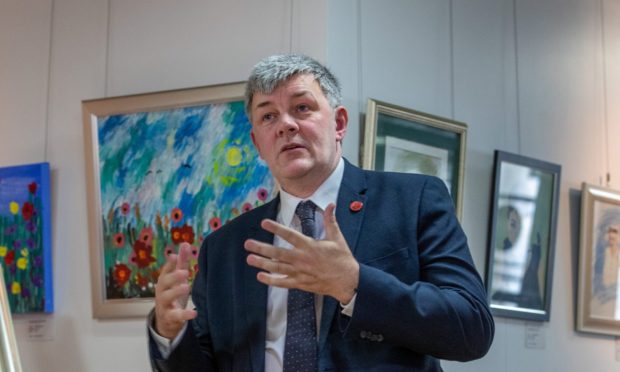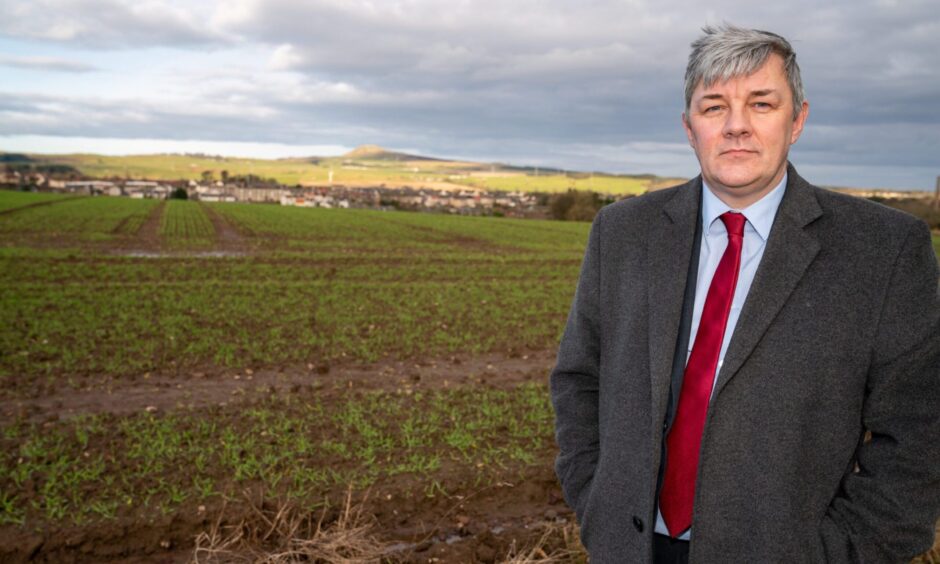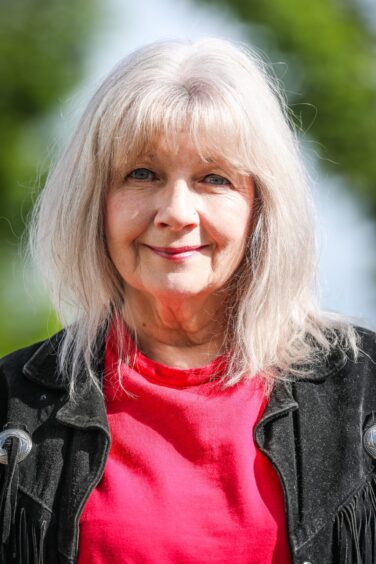Since Glenrothes Labour candidate Altany Craik was forced to back out of his candidacy after his “sexy and satanic” novels spooked party vetters, a debate has erupted over the decision.
Fellow politicians, including Scottish Labour leader Anas Sarwar and rival candidate Lynn Davis, have come out in support of Craik following the action.
And last week one Labour source told us it was “disgusting” Mr Craik was being directed to back out of the selection race over the X-rated passages of his fantasy novel series.
It begs the question – should our elected representatives have to be whiter than white in order to serve their communities?
We need to get away from ‘grey’ politics, says Angus councillor Julie Bell
For Angus councillor Julie Bell, forcing someone out of their candidacy over fiction writing is “an infringement of free speech”.
“Obviously, it depends on how far you push it,” reasons Julie, a self-described witch and practising pagan. “You do have to be aware that you don’t want to bring yourself or your party into disrepute.
“But these books are fiction. And if you you think about, you know, Satanism itself is a fiction.
“So the guy’s being a bit hard done by, around this.”
For Julie, the idea that councillors need to shun their individual values or creative pursuits in order to appear professional in their capacity as representatives is nonsense.
“That greyness that you get a sense of, when you think about politicians – that default setting of old, male and pale – is something we desperately need to move away from,” she says.
“We need to have a much more diverse representation in all the different spheres of government. Because otherwise, how will it represent our citizenship?
“I just don’t understand why anyone would expect us to be clones of each other. It’s not helpful.
“A diversity of views and diversity of ideas are really important to a properly representative society and the civil structures within it.”
As a witch, Julie is openly ‘alternative’ in her approach to life and to her community, preferring communing with nature and connecting with people on a personal level due to her spiritual beliefs.
But she doesn’t believe that’s hindered her ability to represent her constituents – in fact, she thinks it makes it easier for people to open up to her.
“My lived experience is really important to what I bring to the table as an elected member,” explains Julie. “Connecting to nature helps me stay calm and centred and happy.
“And if other people have a faith or a creative talent or a hobby that allows them to keep that equilibrium, they should be able to pursue that without it excluding them from politics.
“It’s a hard job, people place demands on you 24/7 and you need to be able to carve time out for yourself in all of that craziness.
“I mean, I’ve written horoscopes for Jackie magazine back in the day – and that was fiction too! But it didn’t preclude me from becoming a councillor.”
Optics rule the world in political sphere
So why has Craik been forced to back down, then? Our political expert Alasdair Clark explains that it goes beyond the race for Glenrothes councillor, to Craik’s aspirations in the House of Commons.
“All political parties vet their candidates, and while the standards expected of a councillor should be no different to those required of an MP, the truth is that those seeking national office are likely to be subject to much more scrutiny,” says Alasdair.
And as a political reporter, he knows it’s not just party vetters trawling through the past of political hopefuls – journalists are too.
“In the digital age, where a footprint of their past is so accessible, this has become even more of a risk for politicians,” he explains.
“It is hard to overstate how laser focussed Sir Keir Starmer’s Labour Party is on winning the next election.
“Up and down the country this has seen the party make quite ruthless decisions to ensure the candidates it selects are of the very highest probity.
“More importantly, they want to avoid any potentially embarrassing issues distracting from that mission to make it to Number 10.
“If Altany Craik had been pictured standing next to the man who wants to be next prime minister, only for the books to be subsequently discovered by the media, that could have become a real distraction for Labour.
“With this in mind, their decision to suspend him from the race becomes more understandable.”
However, Alasdair points out this has “real consequences for our democracy”.
“Strict vetting, which appears to rule out those where there could be the perception of a “problem” as opposed to an actual one, will only see the bar raised higher and higher,” he warns.
“How comfortable would any of us be if we were placed under that level of scrutiny?”
Do you think councillors should have to be whiter than white in order to stand for their communities? Share your views in the comments below.














Conversation